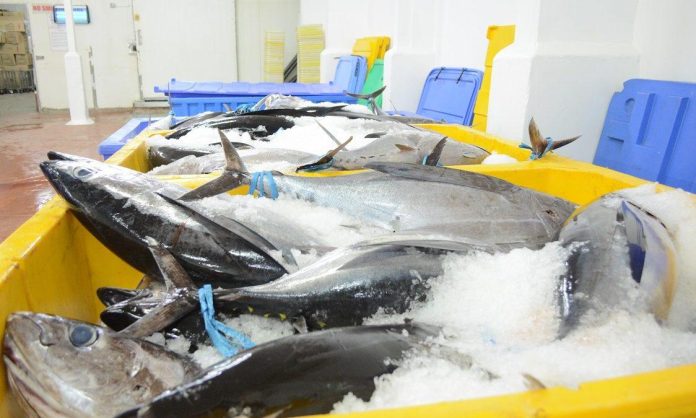While Fiji and other Pacific World Trade Organisation (WTO) members celebrate their influence in the partial Agreement on Fisheries Subsidies last year in Geneva, one regional organisation claims the agreement fails to target the big fishing nations.
Pacific Network on Globalisation (PANG) Campaigner, Adam Wolfenden says these big fishing nations have the historical responsibility for overfishing and yet they are still asking a lot from developing countries and small island states.
“Sadly in the ongoing negotiations, we are seeing proposals specifically targeting large-scale fleets, including by the Africa, Caribbean and Pacific grouping, not be reflected in the latest texts being negotiated. The fish agreements must be prepared to tackle the source of the problem, said Wolfenden.
He was responding to the Fijian Parliament ratifying the WTO Agreement on Fisheries Subsidies in Suva this week.
At a recent World Economic Forum meeting in Tianjin, China in June this year, one of the world’s largest marine fishing producer, the People’s Republic of China announced that it has formally accepted the historic trade agreement for ocean sustainability.
The historical fisheries subsidies agreement will help bring into force a global deal struck a year ago by the World Trade Organisation’s 164 members to work towards eliminating billions of dollars in “harmful” subsidies that are emptying the oceans of fish. The agreement prohibits support for illegal, unreported and unregulated (IUU) fishing, bans support for fishing overfished stocks and ends subsidies for fishing on the unregulated high seas.
With an estimated 564,000 ships, China in 2020 had the biggest fishing fleet in the world, according to the UN’s Food and Agriculture Organisation.
“China’s support for the implementation of this agreement is critical to multilateral efforts to safeguard oceans, food security and livelihoods. By curbing harmful fishing subsidies worldwide, we can together forge a path towards a legacy of abundance and opportunity for generations to come,” said WTO Director Genera Ngozi Okonjo-Iweala said in June.
Under trade rules, two-thirds of the WTO’s 164 members must ratify the deal for it to take effect.
China’s support now means that 36 countries, including all European Union members, have formally accepted it, and the aim is to have the remaining countries do the same before the 13th WTO Ministerial Conference in February next year. Members have also committed to continuing negotiations to expand the scope to include subsidies that support excessive fishing.
The Agreement on Fisheries Subsidies is the second multilateral agreement reached by the WTO since its establishment in 1995, and the first WTO agreement aimed at achieving the goal of environmental sustainable development.
SOURCE: PACNEWS














